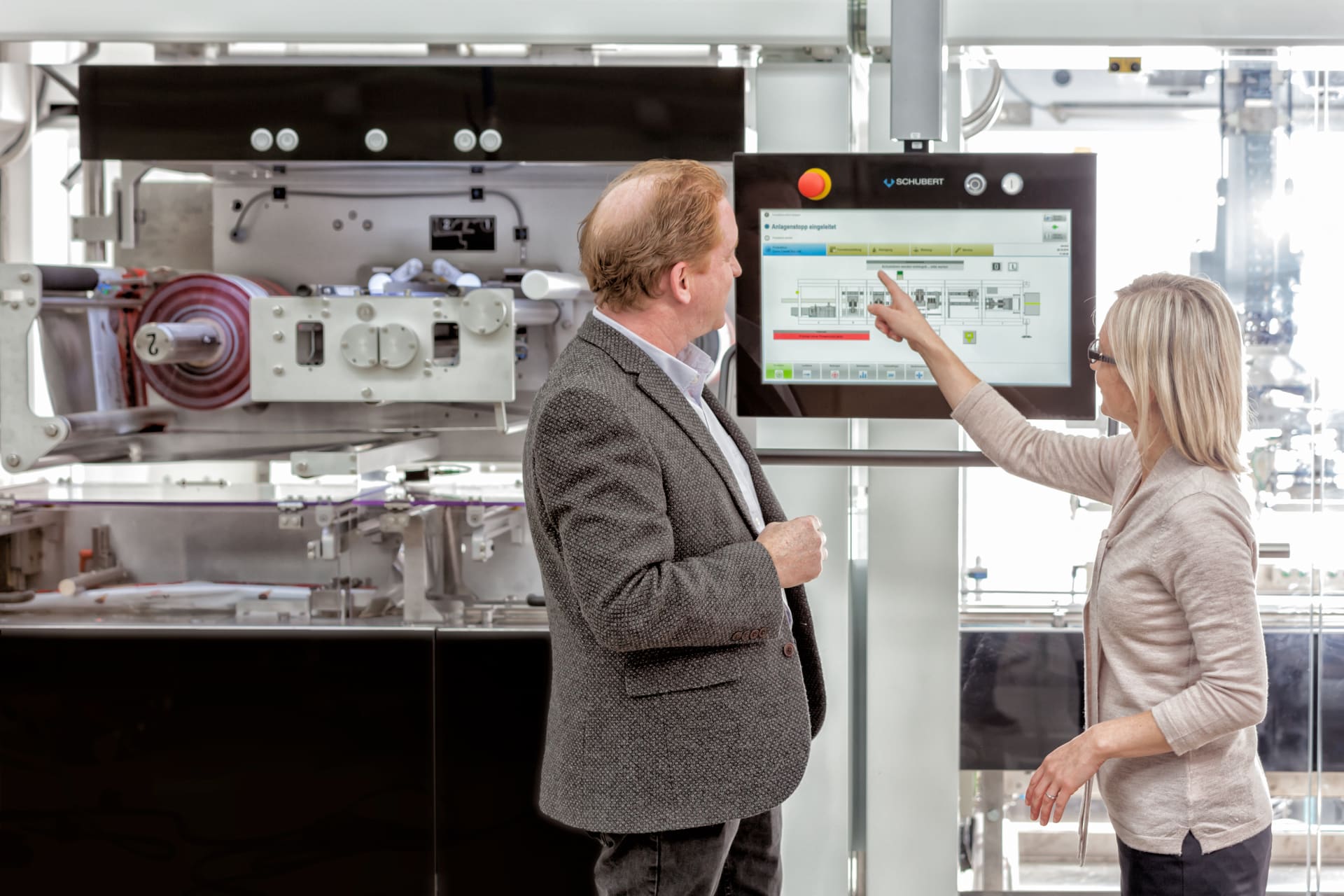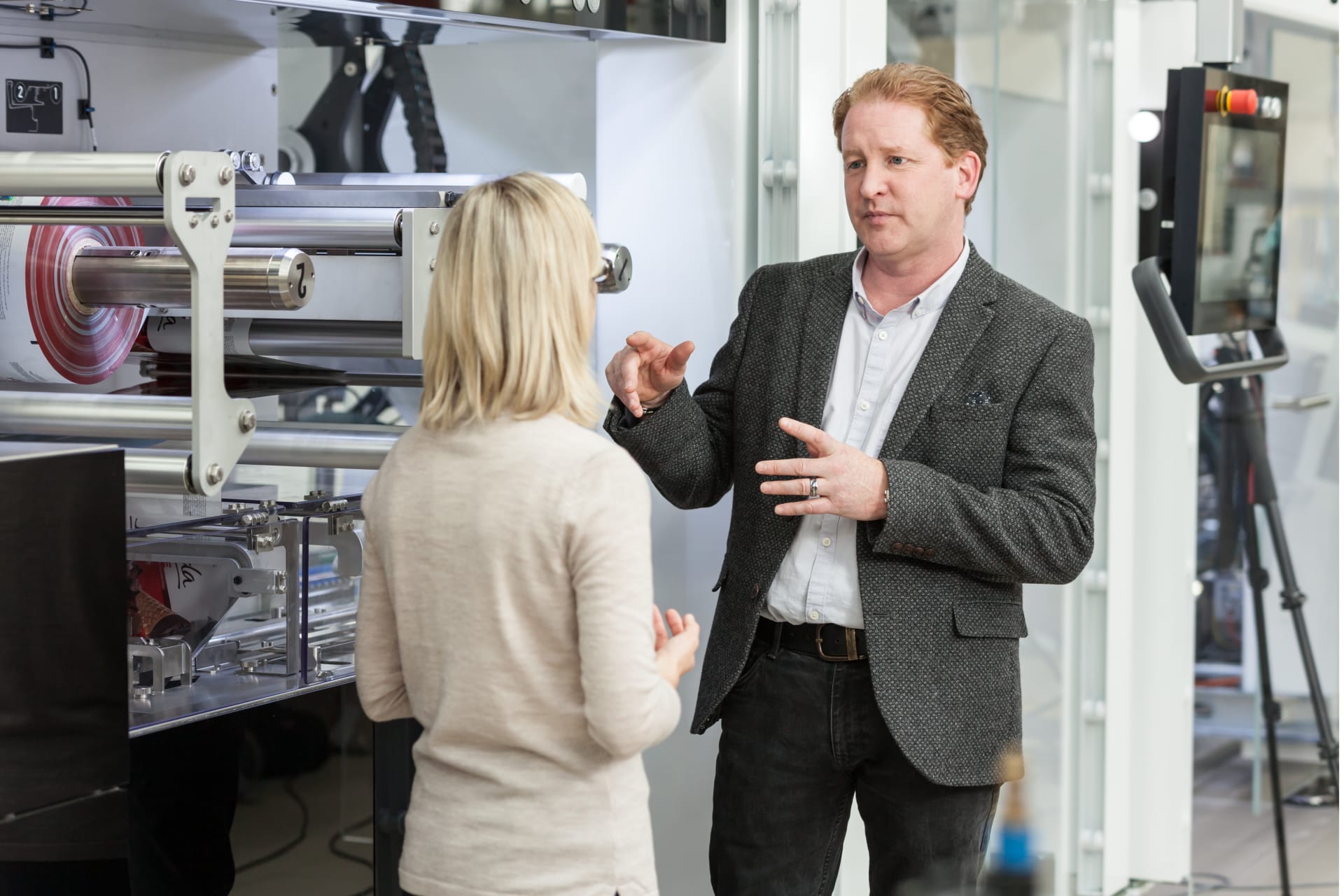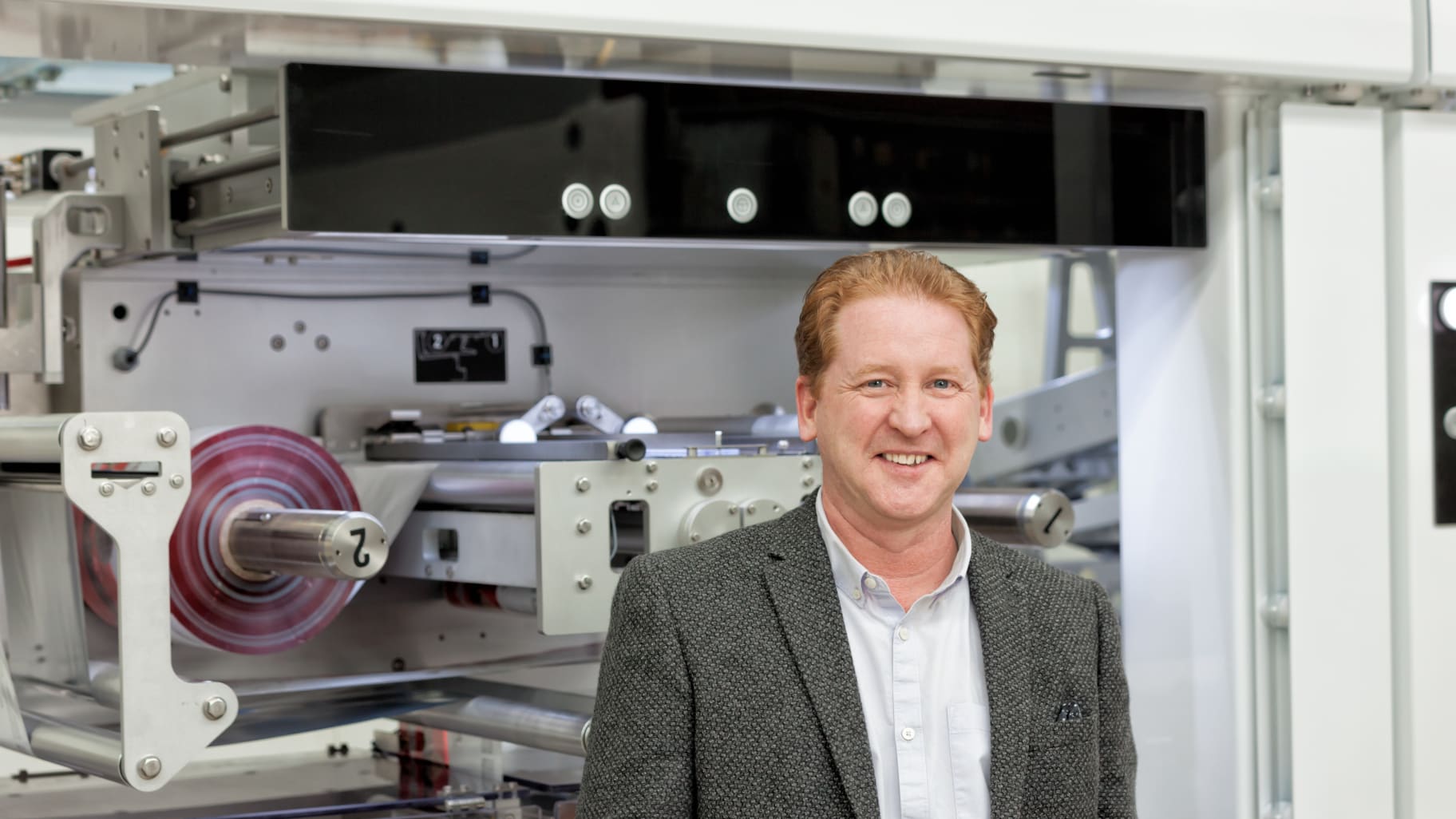How, if at all, does the UK packaging sector differ from other major European markets?
To be honest, there are not that many differences. Flexibility, performance, efficiency and a good business case still represent the cornerstones of all investment. Although the business case is not different, in recent times, it is considered with differing parameters in the UK. An investment is looked at as a long-term venture and many of our customers are now considering payback periods greater than they would have in the past. This makes investment more affordable for customers, enables them to purchase higher-quality, more efficient equipment, and facilitates longer-term operational budgeting.
Another important aspect in the UK market is the available space for automation – or specifically the lack of it. The Schubert modular philosophy employed in our TLM machine systems is ideal for optimising such space-restricted applications.
How is Brexit currently influencing the sector?
The most significant factor surrounding Brexit that is influencing our marketplace is the fact that we have voted to ‘leave’, however, not yet invoked Article 50 of the Lisbon Treaty. This hesitation is suppressing investment as our customers wait to see the real impact of the decision. The weakening of the pound also influences the investment criteria when purchasing in euros.
Does Brexit raise any opportunities?
We believe that it could. And here is one possible scenario. Let’s consider the fact that over 40 percent of all products sold in UK supermarkets are currently imported from the EU. With the drop in value of the pound, supermarkets will inevitably begin to look more closely at UK suppliers. In turn, these suppliers will need highly flexible and efficient automation to be able to cope with the new demands from the supermarkets. And this is exactly where Schubert sees a significant opportunity.

Are there any current trends in the UK market that you would like to highlight?
We are getting involved further up the process line with much more primary packaging. And this is where the 3D vision system developed by Schubert opens up unprecedented possibilities. It significantly increases the performance of our TLM packaging systems – both in pick and place operations as well as in quality control.
And what about the whole notion of flexibility?
Of course, flexibility is a trend that has been on the agenda for a while now. The concept of offering packaging machines as modular systems and thereby achieving the greatest possible flexibility in top-loading tasks has been the cornerstone of Schubert’s successful corporate history since the company was founded 50 years ago. And it is quite clear that the opportunities created by modular components are far from being exhausted. A big plus is that modules can be easily combined or replaced. This allows the high-level flexibility that is increasingly important for many customers in all key sectors – whether food, confectionery, beverages or pharmaceuticals.
How is Schubert perceived in the UK market?
Schubert used to be seen as a high-end, high-cost provider of advanced, high-speed packaging machine solutions which, due to the quality of the engineering and service support, reduced risk for its customers. However, many small- to medium-sized customers had a perception that Schubert machines were simply too expensive. Many customers have since recognised that this perspective was somewhat shortsighted.
Nowadays, of course all of the Schubert benefits still hold true. However, due to the scalability of the modular system the perceived costs are now more widely understood, and the real cost of owning and running a Schubert line is seen as a good long-term investment.
Which of Schubert’s recent innovations do you find most interesting for the UK market and why?
Jede einzelne Innovation von Schubert zeichnet sich durch einen bedeutenden Vorteil für den Markt aus. Das Transmodul hat unseren Ansatz im Verpackungsmaschinendesign revolutioniert, weil es den Zugang zu Märkten eröffnet, die ansonsten unerreichbar geblieben wären. Unser TransportrobWell, in fact, every single one of Schubert’s innovations brings a significant advantage to the market. However, the Transmodul has revolutionised our approach to packaging machine design, opening up access to markets that were otherwise thought inaccessible. Our transport robot allows for programmable movement of products and packaging through our machines – and comes into its own when an unstable product is being handled.This capacity coupled with the ability to run in either an indexing or continuous motion on demand allows full flexibility in most applications. As the ‘longest serving’ of our more recent innovations, it has proven to be capable of allowing automation where it would not be feasible in the past. For this reason, I am convinced that the Transmodul is the innovation that has been of most benefit to our customers to date.oter ermöglicht programmierbare Produktbewegungen und Verpackungsabläufe mit unseren Maschinen – und spielt seine Stärken besonders dann voll aus, wenn ein sensibles oder instabiles Produkt zu verpacken ist.
Mit der Möglichkeit, einen getakteten oder kontinuierlichen Bewegungsmodus je nach Bedarf auszuwählen, erhalten die Kunden volle Flexibilität für die meisten Anwendungen. Als „dienstälteste“ unserer jüngeren Neuerungen konnte mit dem Transmodul bewiesen werden, dass eine Automatisierung auch in Bereichen möglich ist, in denen sie in der Vergangenheit nicht machbar gewesen wäre. Deshalb bin ich davon überzeugt, dass das Transmodul bis heute die Innovation mit den meisten Vorteilen für unsere Kunden ist.
And how are other Schubert innovations contributing to more efficient packaging processes for your customers?
The 3D vision system, for example, gives much more control over product detection and quality monitoring. Increased usable yield and process security are now available to Schubert customers.
Furthermore, our new TLM systems without an electrical cabinet will be of benefit to all sectors as the technology will enable more compact machines that are easier to maintain due to the simplified control system. These key aspects will ensure that long-term operating costs will be lower – and that can only be a good thing!
And, of course, Schubert’s latest innovation should also be mentioned: the Flowmodul was just recently introduced at the FachPack in Nürnberg. This new flow-wrapping component enables the seamless packaging of products such as confectionery, cosmetics and pharmaceutical products in flowpacks within its well-established top-loading packaging machines. The same control and drive technology is used as with the previous components – therefore enabling the Flowmodul to be operated together with all other line components via a single HMI interface. Additionally, the possible product formations within a flow-wrap bag format are close to unlimited. The flexibility that the new Flowmodul delivers is greater than anything found on the market today.
How do customers experience the cost-effectiveness of Schubert machines as a bottom-line benefit?
The cost of any machine should never be considered as just a capital investment. There are many facets of ownership that should be considered as significant factors when looking at a packaging machine investment. This is where the true benefits of a Schubert solution excels for its customers. High-quality design and manufacturing, capitalising on decades of experience and innovation, enable low risk, high performance and high efficiencies.

In concrete terms, what are the benefits for your customers?
Minimal changeover times coupled with vertical ramp-up reduce the impact of format/product batch changes. Ease of use and software-assisted fault finding also means less time down.
Referencing cost-effectiveness, other notable Schubert innovations that should be considered include a self-diagnostic control system that can indicate when and where a component failure may occur – so it can be a planned stoppage rather than a time-sapping ‘surprise’ – through to energy regeneration during braking on the servo motors for both robots and transport systems leading to reduced energy costs.
In a nutshell, the higher yield and lower operating costs prove time and again that a Schubert solution is a cost-effective solution.
How is Schubert’s modular approach to its systems of significant value to your customers?
The modularity that Schubert delivers means highly flexible, scalable, proven engineered functions that can be configured to a bespoke solution. This proven design equates to high performance and high efficiencies and therefore optimised output for our customers.
Furthermore, our modular approach also means that a Schubert machine is ‘future-proofed’. Why? Because should the packaging style of the product that our machine was bought for change, or indeed be replaced, then a Schubert solution can be ‘re-tooled’, extended or even reconfigured to suit the restyled or replacement product.
Looking at your professional background, it would seem that service has always played a key role for you. What drives customer service at Schubert?
If you supply world-class equipment that is conceived to last for at least 20 years, then that equipment has to be backed up by world-class service, otherwise the term ‘world-class’ does not apply. The philosophy within our service department is to provide an unparalleled high level of support and to nurture long-term partnerships with our customers. As such, we have developed a number of software and remote systems to ensure our customers receive support as quickly and effectively as possible. Schubert continues to invest significantly to ensure that the highest level of local service is available, backed up by central expertise and resources.
Thank you, Mark, for your time!



